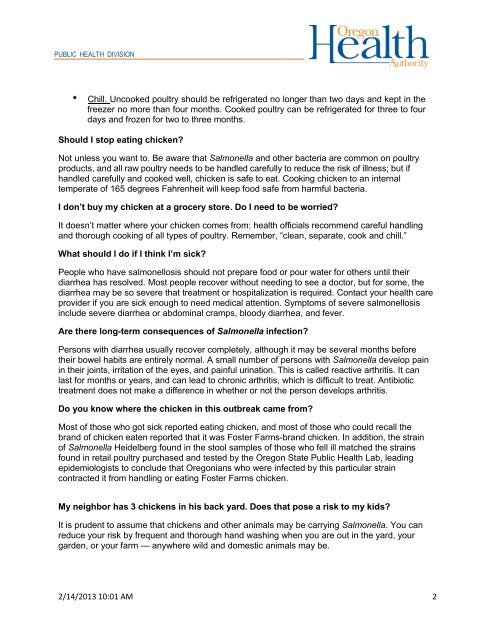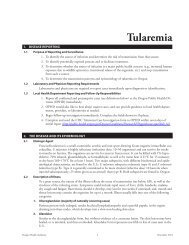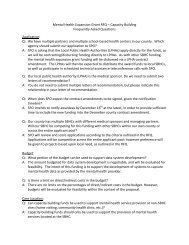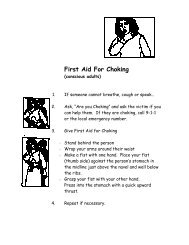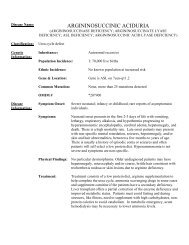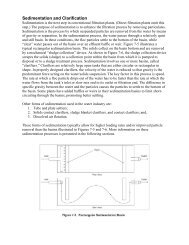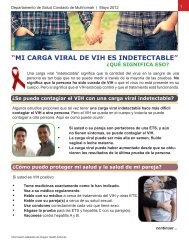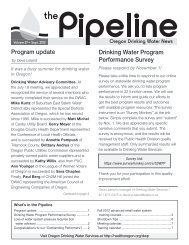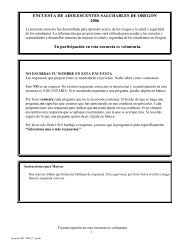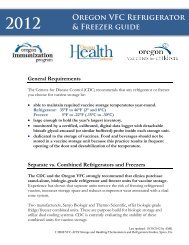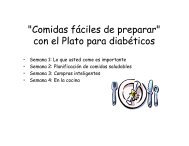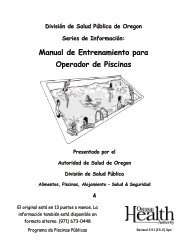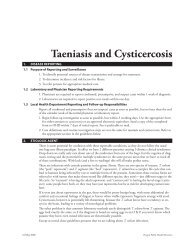FAQ: 2012 Salmonella Heidelberg Outbreak - Public Health
FAQ: 2012 Salmonella Heidelberg Outbreak - Public Health
FAQ: 2012 Salmonella Heidelberg Outbreak - Public Health
Create successful ePaper yourself
Turn your PDF publications into a flip-book with our unique Google optimized e-Paper software.
PUBLIC HEALTH DIVISION<br />
Chill. Uncooked poultry should be refrigerated no longer than two days and kept in the<br />
freezer no more than four months. Cooked poultry can be refrigerated for three to four<br />
days and frozen for two to three months.<br />
Should I stop eating chicken?<br />
Not unless you want to. Be aware that <strong>Salmonella</strong> and other bacteria are common on poultry<br />
products, and all raw poultry needs to be handled carefully to reduce the risk of illness; but if<br />
handled carefully and cooked well, chicken is safe to eat. Cooking chicken to an internal<br />
temperate of 165 degrees Fahrenheit will keep food safe from harmful bacteria.<br />
I don’t buy my chicken at a grocery store. Do I need to be worried?<br />
It doesn’t matter where your chicken comes from: health officials recommend careful handling<br />
and thorough cooking of all types of poultry. Remember, “clean, separate, cook and chill.”<br />
What should I do if I think I’m sick?<br />
People who have salmonellosis should not prepare food or pour water for others until their<br />
diarrhea has resolved. Most people recover without needing to see a doctor, but for some, the<br />
diarrhea may be so severe that treatment or hospitalization is required. Contact your health care<br />
provider if you are sick enough to need medical attention. Symptoms of severe salmonellosis<br />
include severe diarrhea or abdominal cramps, bloody diarrhea, and fever.<br />
Are there long-term consequences of <strong>Salmonella</strong> infection?<br />
Persons with diarrhea usually recover completely, although it may be several months before<br />
their bowel habits are entirely normal. A small number of persons with <strong>Salmonella</strong> develop pain<br />
in their joints, irritation of the eyes, and painful urination. This is called reactive arthritis. It can<br />
last for months or years, and can lead to chronic arthritis, which is difficult to treat. Antibiotic<br />
treatment does not make a difference in whether or not the person develops arthritis.<br />
Do you know where the chicken in this outbreak came from?<br />
Most of those who got sick reported eating chicken, and most of those who could recall the<br />
brand of chicken eaten reported that it was Foster Farms-brand chicken. In addition, the strain<br />
of <strong>Salmonella</strong> <strong>Heidelberg</strong> found in the stool samples of those who fell ill matched the strains<br />
found in retail poultry purchased and tested by the Oregon State <strong>Public</strong> <strong>Health</strong> Lab, leading<br />
epidemiologists to conclude that Oregonians who were infected by this particular strain<br />
contracted it from handling or eating Foster Farms chicken.<br />
My neighbor has 3 chickens in his back yard. Does that pose a risk to my kids?<br />
It is prudent to assume that chickens and other animals may be carrying <strong>Salmonella</strong>. You can<br />
reduce your risk by frequent and thorough hand washing when you are out in the yard, your<br />
garden, or your farm — anywhere wild and domestic animals may be.<br />
2/14/2013 10:01 AM 2


